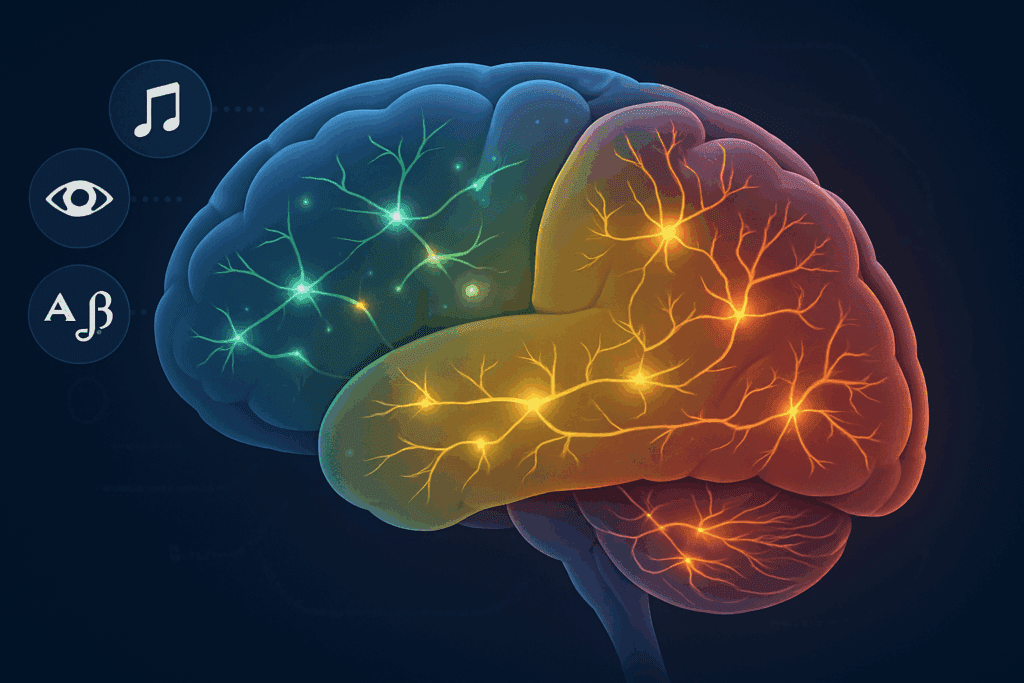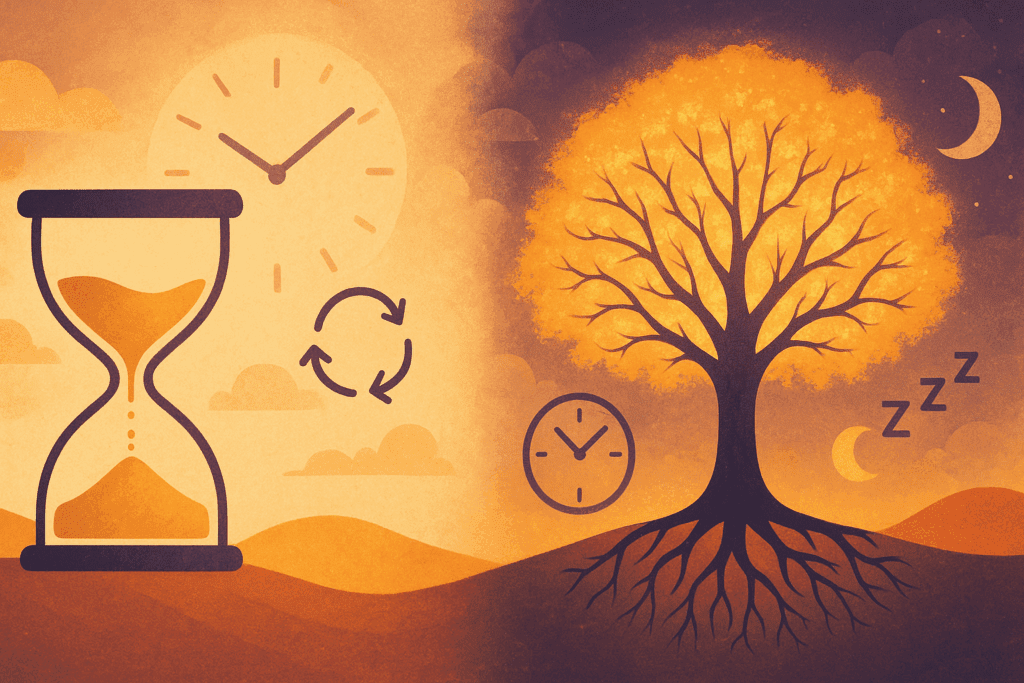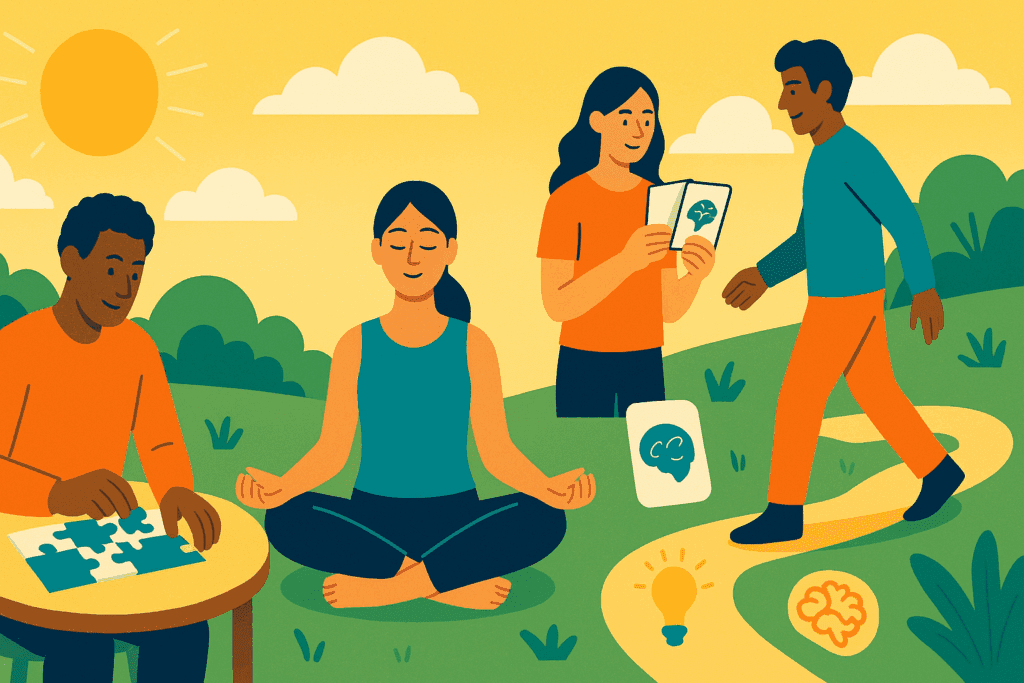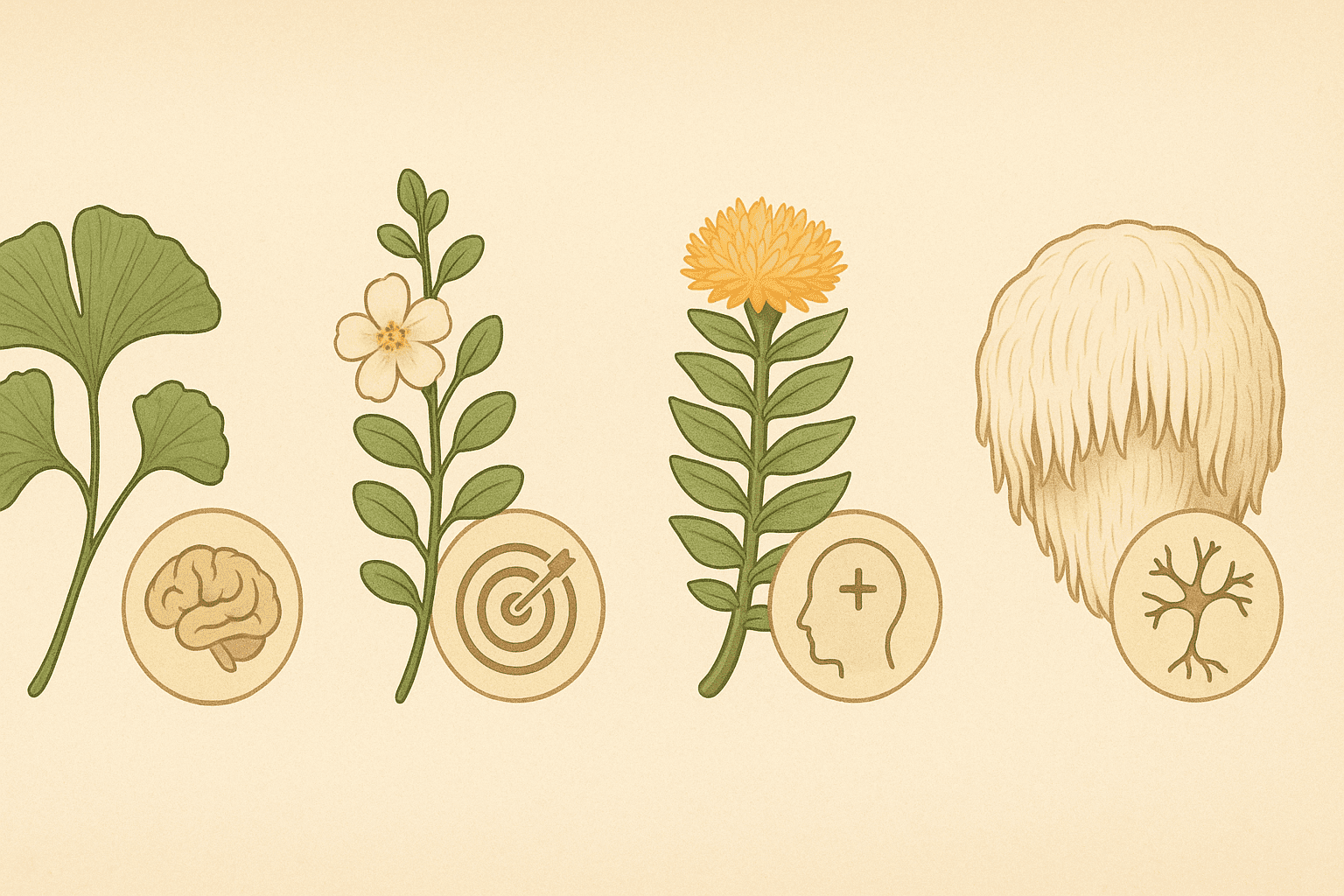Introduction: Why Understanding Memory Timing Matters
Memory lies at the heart of every academic endeavor, creative project, and cognitive achievement. Whether preparing for a test or simply aiming to remember where you left your keys, the question inevitably arises: how long does it take to memorize something? Despite appearing simple, the answer is multifaceted, weaving together the neuroscience of memory formation, attention, repetition, individual differences, and even the support of natural nootropics. Understanding this process can illuminate not just how to memorize things fast for a test but also how to sharpen your brain over time.
You may also like: Best Herb for ADHD Support: How Natural Remedies and Herbs for ADHD Women May Help Boost Focus and Calm
In the digital age, where distractions abound and cognitive load is high, knowing how to keep your mind sharp as you age and how to increase your mind power becomes essential. From brain flexibility exercises to tips for memorizing complex information, this article explores the intersection of science and nature. We’ll also delve into natural herbs that may support cognitive function, including ancient remedies that modern research continues to explore. By the end, readers will gain a clear view of how long it takes to commit something to memory—and how to do it faster, smarter, and more effectively.

How Memory Works: The Science Behind Remembering
To understand how long it takes to remember something, one must first appreciate how memory is formed. Memory is not a singular event but a process composed of encoding, storage, and retrieval. When new information is encountered, it must first be encoded—transformed into a format that the brain can process. This is where techniques like visualization, repetition, and association become crucial.
After encoding, the brain stores the memory. Short-term memory can retain small amounts of information for mere seconds, while long-term memory, once consolidated, can last a lifetime. Consolidation is often reinforced during sleep, especially during REM cycles, highlighting why quality rest is one of the best memorization techniques.
The final stage—retrieval—is what allows you to recall the information when needed. If you’ve ever asked yourself, “why does it take me so long to memorize?”, it may be due to weak encoding or poor retrieval cues. Cognitive exercises for adults, such as puzzles, mnemonics, and brain games, are known to strengthen these pathways. Neuroscientific studies show that repeated exposure and active recall are vital for solidifying memories.

Timeframes for Memorization: What the Research Says
When asking how long it takes to memorize something, research shows that the answer depends on multiple variables: the complexity of the information, the method used, individual cognitive ability, and the frequency of repetition. For instance, rote memorization of a short poem might take just 10 to 15 minutes for someone trained in memory methods for studying. In contrast, learning a detailed anatomical structure may require hours or days of spaced repetition.
Studies reveal that the brain starts forming a new memory immediately, but consolidation into long-term memory can take hours to days. This explains why sleep is a crucial ally. Moreover, research on how to memorize something in 10 minutes or even how to memorize something overnight often emphasizes the importance of active engagement, storytelling techniques, and multisensory learning.
Importantly, consistency often outweighs speed. Learning how to remember information for a test should focus less on cramming and more on strategically spaced review sessions. This approach aligns with how to memorize things fast for an exam while also increasing long-term retention. Understanding that effective memorization is less about instantaneous recall and more about gradual reinforcement is key to success.

Why Does It Take Me So Long to Memorize?
Many individuals express frustration at how long it takes to commit something to memory. This delay can often be traced to a few underlying causes. Distractions, stress, fatigue, or poor nutrition can all impair memory encoding and consolidation. Additionally, cognitive overload from multitasking makes it harder for the brain to process and store new data.
Another factor involves the match between the memory technique and the type of content. For example, visual learners might struggle with purely auditory materials unless they translate the content into mental imagery. To address this, exploring how to memorize things fast for a test might involve experimenting with flashcards, drawing diagrams, or teaching the content aloud to oneself.
Underlying health issues such as vitamin deficiencies, particularly B vitamins, can also affect memory performance. For those wondering how to boost your mind power, optimizing nutrition is a foundational step. Herbal supplements may further support this goal, especially those backed by clinical research, which we’ll explore in depth later.
Lastly, age-related cognitive changes can influence how long it takes to remember something. However, engaging in brain flexibility exercises and adopting memory methods for studying can significantly mitigate these effects. The brain, remarkably adaptable, can continue learning and growing well into later decades with the right stimulation and support.
Cognitive Exercises and Strategies That Strengthen Memory
One of the best ways to increase your mind power and reduce the time it takes to memorize something is through structured cognitive training. These brain flexibility exercises are designed to challenge working memory, spatial reasoning, and verbal fluency. Whether through apps, puzzles, or real-world tasks like learning a new language or instrument, these methods sharpen your brain by engaging multiple regions simultaneously.
In particular, spaced repetition software (SRS) has gained attention in academic circles. Based on the Ebbinghaus Forgetting Curve, SRS helps learners review information at optimal intervals to maximize retention. This strategy not only addresses how to remember what you read for exams but also how to stay mentally sharp into your 80s and beyond.
Memory palace techniques, also known as the Method of Loci, are another powerful tool. By associating new information with a familiar spatial environment, individuals can recall complex data more quickly. This is especially useful for students exploring how to memorize things fast for exam settings. It combines visual memory, spatial orientation, and narrative building—three of the brain’s strongest tools for retention.

Incorporating mindfulness and meditation into daily life has also been shown to support memory. These practices reduce stress, improve focus, and promote neurogenesis in the hippocampus, a region integral to memory formation. Over time, they can be just as effective as traditional cognitive exercises for adults.
The Role of Sleep, Diet, and Lifestyle in Memory Speed
Sleep is one of the most underestimated components of memory. Numerous studies affirm that sleep is essential for memory consolidation. During different stages of sleep, the brain replays and integrates newly learned information. This is why strategies that promise how to memorize something overnight often hinge on reviewing material before bed.
Diet also plays a pivotal role. Foods rich in antioxidants, omega-3 fatty acids, and flavonoids help maintain neural integrity. Blueberries, walnuts, green tea, and fatty fish are examples of brain foods that promote cognitive resilience. Hydration, too, is critical. Even mild dehydration can impair short-term memory and concentration.
Exercise increases blood flow to the brain and stimulates the release of neurotrophic factors like BDNF (brain-derived neurotrophic factor), which supports neuroplasticity. For those seeking how to sharpen your brain, incorporating regular physical activity alongside mental challenges offers synergistic benefits.
Limiting alcohol, managing stress, and avoiding processed foods further contribute to cognitive clarity. Simple habits—like taking brisk walks, staying hydrated, or practicing gratitude—can reduce mental fog and help commit something to memory more efficiently.

Frequently Asked Questions: How Long Does It Take to Memorize Something?
1. Can environmental factors influence how long it takes to memorize something?
Absolutely. Environmental factors like lighting, noise levels, air quality, and even room temperature play a significant role in determining how long it takes to memorize something. For instance, trying to commit facts to memory in a noisy café versus a quiet library can yield vastly different outcomes. Studies show that distraction-rich environments reduce encoding efficiency, extending the time required to learn new information. Those who ask, “Why does it take me so long to memorize?” may find that a controlled, distraction-free environment cuts their learning time significantly. Incorporating a focused space not only supports efficiency but can enhance long-term recall quality as well.
2. How does emotional state impact the speed of memorization?
Emotion significantly affects both the encoding and retrieval phases of memory. When individuals experience anxiety or stress, cortisol levels rise, interfering with hippocampal function—the region of the brain responsible for memory. As a result, how long it takes to memorize something can increase notably under emotional duress. Interestingly, emotional arousal linked to positive experiences may enhance retention, suggesting a nuanced relationship. Those curious about how long it takes to remember something after an emotional event should know that emotions can either reinforce or inhibit memory, depending on the nature and intensity.
3. Is multitasking detrimental to memory speed and retention?
Yes, multitasking is one of the key reasons many people wonder, “Why does it take me so long to memorize?” Cognitive science confirms that the brain isn’t designed for parallel processing of complex tasks. Each time attention shifts between two activities, the brain undergoes a “switch cost” that temporarily lowers performance. So if you’re trying to memorize a text while checking your phone, it will likely take longer to commit something to memory. Minimizing multitasking and practicing single-task focus can drastically reduce how long it takes to remember something.
4. Can journaling or self-explaining help speed up memorization?
Journaling and self-explaining—where you write out or verbally articulate what you’re learning—can strengthen memory consolidation. These practices engage metacognition, a process that makes the brain more actively involved in learning. If you’re wondering how long it takes to memorize something with these techniques, studies suggest that learners who self-explain retain information up to 40% more effectively. This reduces the overall time needed to commit something to memory. It also clarifies gaps in understanding, which often hinder recall during exams or presentations.
5. How does social interaction influence memory speed and clarity?
Surprisingly, discussing new information with others can significantly enhance memory speed. This method, known as collaborative learning, creates dynamic engagement that can reduce how long it takes to remember something. Explaining concepts out loud and fielding questions reinforces neural pathways involved in recall. Those who ask, “Why does it take me so long to memorize?” might benefit from peer study groups or teaching others. Additionally, receiving social cues, feedback, and support helps solidify learning in ways solitary study sometimes cannot.
6. Does hydration affect how long it takes to memorize something?
Yes, hydration is often overlooked but vitally important. Even mild dehydration can impair cognitive functions, including attention and memory. If you’re wondering why it takes you so long to memorize even simple things, a glass of water might offer more help than expected. Research shows that hydrated individuals perform better on memory tasks and reduce how long it takes to commit something to memory. Keeping water within reach during study sessions is a low-effort, high-impact strategy for cognitive performance.
7. What role does background music play in memorization efficiency? T
he role of background music in memorization varies based on individual learning styles and the complexity of the task. Classical or ambient music may help some people concentrate, while lyrics can distract others. If you’re exploring how long it takes to remember something with music playing, the answer is nuanced: music can either enhance or hinder learning depending on the context. Those who find it takes longer to commit something to memory while studying with music may benefit from silence or instrumental tracks. Experimenting with auditory environments can help tailor a personalized memorization strategy.
8. How do diet and micronutrient intake affect memory formation speed?
While the article covers general nutrition, micronutrient intake deserves more attention. Nutrients like magnesium, zinc, and choline specifically support neurotransmitter function and synaptic plasticity. If you’re struggling with how long it takes to memorize something, a diet low in these micronutrients could be partly to blame. For example, magnesium plays a critical role in NMDA receptor regulation, which affects learning and memory. Regular intake of memory-supportive nutrients can shorten how long it takes to commit something to memory and improve retrieval accuracy over time.
9. How do different learning styles affect the time it takes to memorize something?
Understanding your learning style—be it visual, auditory, kinesthetic, or reading/writing—can dramatically influence how long it takes to memorize something. A visual learner using only audio materials might struggle unnecessarily, leading to questions like “Why does it take me so long to memorize?” Aligning learning strategies with preferred modalities improves encoding efficiency. For example, a kinesthetic learner might benefit from acting out scenarios or using physical flashcards. Tailoring your approach to your cognitive strengths can shorten how long it takes to remember something significantly.
10. What emerging technologies are helping people memorize faster?
Innovative technologies such as brainwave entrainment tools, virtual reality, and AI-powered learning apps are revolutionizing how long it takes to commit something to memory. Tools that stimulate theta brainwaves, for instance, create an ideal state for absorbing new information. Virtual reality can simulate immersive environments, allowing users to engage multiple senses—accelerating memorization in professional training and education. AI-driven platforms customize review schedules to optimize learning curves and reduce the time it takes to remember something. For those still wondering, “Why does it take me so long to memorize?”, these tools offer targeted, data-backed solutions to enhance efficiency and retention.

Natural Herbs That May Support Focus, Memory, and Clarity
For centuries, cultures around the world have used herbal remedies to support mental clarity and memory. Today, science is beginning to validate many of these traditional practices. Among the most promising herbs are Ginkgo biloba, Bacopa monnieri, Rhodiola rosea, and Lion’s Mane mushroom.
Ginkgo biloba is one of the most researched natural ingredients for brain health. It’s believed to enhance circulation to the brain and support memory formation. Studies suggest that consistent supplementation may improve how quickly individuals recall stored information, making it a useful aid for those asking how to remember things while studying.
Bacopa monnieri, an adaptogen long used in Ayurvedic medicine, has demonstrated positive effects on working memory and processing speed. Its neuroprotective properties may explain its growing popularity in cognitive supplements aimed at students and professionals alike. For anyone wondering how to memorize for exams, Bacopa could be a helpful ally.
Rhodiola rosea supports mental energy and focus by regulating cortisol levels and promoting mitochondrial health. Especially useful during times of stress, Rhodiola can improve attention span and reduce fatigue—a combination particularly useful when trying to remember information for a test under pressure.
Lion’s Mane mushroom is increasingly studied for its role in stimulating Nerve Growth Factor (NGF), which promotes the repair and regeneration of neurons. This may be especially valuable for individuals exploring how to keep your mind sharp as you age or how to stay mentally sharp into your 80s and beyond.
All of these herbs, when paired with a healthy lifestyle, serve as complementary tools to memory techniques, not replacements. It’s essential to source high-quality supplements and consult a healthcare professional before use.
Further Reading:
How do you memorize stuff and how much time does it take?
How many repetitions for long term retention?
How long does it take you to memorize something without the aid of mnemonics?


